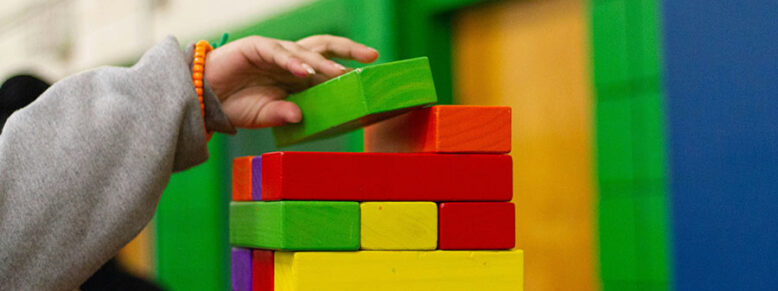On the left of the political spectrum, for example, people naturally look to the state for solutions to economic and social problems. But those who believe in economic freedom, who might be found on the other side of parliament, often couch their beliefs in terms of freedom for the individual. Of course, we should not dismiss the idea of individual freedom. Ultimately, only individuals can take decisions, and it is individuals who make commitments to each other in families. However, the basic unit of social organisation is the family and not the individual. There are some members of parliament, such as Miriam Cates, who are not afraid to say this, but not many.
A few decades ago, the family was discussed much more widely in politics. I cannot find the source, but Margaret Thatcher once said: “What is right for the family is right for Britain” and, when speaking about the tax system, she said: “Every family should have the right to spend their money, after tax, as they wish, not as the Government dictates.” She used the word “family” and not “individual” or “wage earner” or “person”. I will come back to Mrs. Thatcher later because the actions did not quite match up to the words.
And this focus on the family amongst politicians before the current generation is not surprising. In most religious traditions, the family is the basic unit from which society is built. In his 1963 encyclical letter entitled “Pacem in terris”, (meaning “Peace on Earth”), Pope St. John XXIII argued:
The family, founded upon marriage freely contracted, one and indissoluble, must be regarded as the natural, primary cell of human society. The interests of the family, therefore, must be taken very specially into consideration in social and economic affairs, as well as in the spheres of faith and morals. For all of these have to do with strengthening the family and assisting it in the fulfilment of its mission.
This viewpoint is accepted widely in the Judaeo-Christian thinking which informed the development of our political institutions.
Perhaps the most essential biblical verse on the unity and sacredness of marriage is found in Genesis 2:24 where, “…a man leaves his father and mother and is united to his wife, and they become one flesh.” They are no longer two, but one.
The very first modern Catholic social teaching document, Rerum Novarum, has a staunch defence of the family in a political context. The document was written, of course, in a different era when the family was also under attack. Pope Leo XIII wrote:
Hence we have the family…a society very small, one must admit, but none the less a true society, and one older than any State. Consequently, it has rights and duties peculiar to itself which are quite independent of the State.
And then, regarding the relationship between the family and the state, he wrote:
The contention, then, that the civil government should at its option intrude into and exercise intimate control over the family and the household is a great and pernicious error. True, if a family finds itself in exceeding distress, utterly deprived of the counsel of friends, and without any prospect of extricating itself, it is right that extreme necessity be met by public aid, since each family is a part of the commonwealth. In like manner, if within the precincts of the household there occur grave disturbance of mutual rights, public authority should intervene to force each party to yield to the other its proper due; for this is not to deprive citizens of their rights, but justly and properly to safeguard and strengthen them. But the rulers of the commonwealth must go no further; here, nature bids them stop.
Of course, we live in an era in which the state intervenes in the family to a much greater degree than Pope Leo envisaged. People will have different views on that. But it is fair to say that the decline in the family has led to certain social trends which probably make some of those interventions necessary.
When we say that a family or a household is a miniature society, it is making an important statement. A family, like any society, develops its own rules and ways of working. Crucially, the members of the family are individuals who have to work together and co-operate together – that is what Pope Leo meant by a “miniature society”. This is a wonderful thing: it is in the family that we learn socialisation.
Indeed, the family is even responsible for what we call “distributive justice” – determining how resources are allocated between different people. Not every member of a family or household is an earner (not even all the adults of working age). But resources have to be shared and decisions have to be taken about how much is spent and for what purposes. Members of families do this together.
And this is interesting because it leads us into a discussion of our tax system.
Our tax system operates under the assumption that people live entirely atomistic lives as individuals. It ignores the household or the family altogether. Most listeners will know that we all get a tax-free income allowance before we pay tax, which is about £12,500 (in fact, it is a little more). We are given this as individuals and, if we don’t use it – hard luck. This means that, if you have a household with husband and wife who both go out to work and earn £12,500, each of those individuals would pay no tax whatsoever. The family income is irrelevant for determining the amount of tax that is paid – the government only looks at the income of individuals.
Now imagine that the husband goes out to work and the wife has caring responsibilities (it would be the same result if it were the other way round), and the husband earns £25,000 so that the family income is exactly the same. Perhaps the earner puts in extra hours, tries for promotion or takes some additional qualifications. He now pays tax and national insurance at about 32% on half that income. The take-home pay of the family where both adults go out to work is more than 20 per cent higher than that of the family where one of the parents assumes caring responsibilities – even where the family income is identical.
This is one stylised and not entirely realistic example. But the main point still holds. If one of the adults in a family takes on caring responsibilities, there is a huge increase in the amount of tax they have to pay for a given family income.
It gets worse than this as earnings rise. A family that earns £60,000 a year with just one earner and one parent who is a carer receives no child benefit. If the same family has two working parents earning £50,000 each (or £100,000 in total) they receive the full level of child benefit for every child they have.
To put it bluntly, there is a large financial penalty for being a single-earner family and caring for your own children.
Of course, the politicians – of all parties – do have a solution to this. They realise that life is tough for families with stay-at-home mothers. Indeed, it is, in fact, single-earner families were mothers stay at home who are amongst the most financially hard-up of all families. The politicians’ solution is for the government to provide free childcare so that both parents can go out to work.
There is another way. The Catholic Union, informed by research that we have undertaken at St. Mary’s University and published by Policy Exchange, has been making representations to change the tax system to one whereby all households on the same income are taxed the same regardless of whether they are single-earner family. France and Germany have such a system. I said I would mention Mrs Thatcher again. In fact, we used to have a similar system to that in France and Germany before Mrs Thatcher reformed it in 1988.
When you combine our incredibly complex welfare system with our tax system, two adults with children are often actually penalised if they get married (or even live together). Is it surprising that over 50 per cent of children are born outside marriage and over one-fifth of all children live with only one parent? In some areas of the country, these figures are much higher.
And this does matter. The Centre for Social Justice has shown that a child whose family broke down before they turned 18 is twice as likely to be abusing substances, suffer poor mental health, and end up homeless. They are almost twice as likely to end up in jail, and in debt. And children from broken homes miss out on so much that is positive too. The decline of the family is a tragedy for all of us, not least the young people who suffer from family breakdown.
In Part Two, I will move on and look at the “demographic winter” that faces the world.
Read: The family – the basic building block of society (part two)
—
Photo by La-Rel Easter on Unsplash







